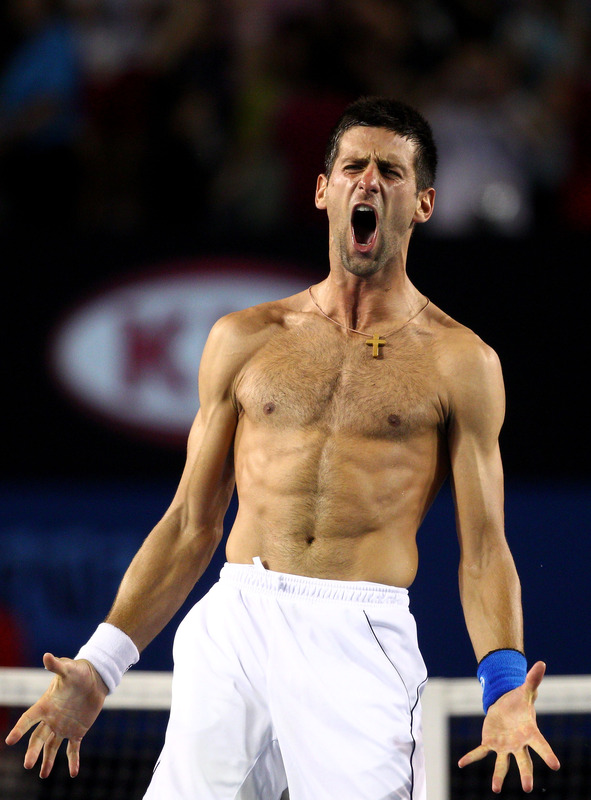Doctor/Lawyer Red Devil
Talk Tennis Guru
Hey @Hitman 
For a while now I have been planning to do some workouts. The best I have ever done is consistent one month exercising of crunches when I got some belly fat after many nights out drinking. It was that kind of a cycle a few times.
Anyway, that's not really the problem. I am too thin. 74kg while being 187cm tall. Very strong legs as I have walked a lot all my life, but palpable ribs, smaller, weakish arms and a stomach that could be a bit flatter. This state is a result of me rarely doing more demanding physical jobs, and while I think I eat healthy and with variety, my appetite is low. Not finishing my meal is not a rare occurrence, while for dinner I either eat some fruits or nothing at all. The bad habits I have are eating sweets regularly (though just like everything else, not in big doses), drinking Coke most of the days and the occasional smoking.
What do you think is the best set of exercises (without equipment if possible) to improve my strength and physique, and is there anything in particular you would advise me on my eating (apart from the probably obvious part that I should eat more)? Keep in mind that I don't want to get ripped or look like some of those guys who are obsessed with gyms. Just want to achieve a decent figure in order to feel better and healthier, as well as look a bit manlier, while when people look they won't say "this guy doesn't care about himself whatsoever".
While my willpower can be much better, the main reason why I am in this situation and why I am asking you for some guidance is because I don't really know what would be the best way to improve myself. Now that I have organized myself when it comes to my work, I would like to give this a shot as well.
For a while now I have been planning to do some workouts. The best I have ever done is consistent one month exercising of crunches when I got some belly fat after many nights out drinking. It was that kind of a cycle a few times.
Anyway, that's not really the problem. I am too thin. 74kg while being 187cm tall. Very strong legs as I have walked a lot all my life, but palpable ribs, smaller, weakish arms and a stomach that could be a bit flatter. This state is a result of me rarely doing more demanding physical jobs, and while I think I eat healthy and with variety, my appetite is low. Not finishing my meal is not a rare occurrence, while for dinner I either eat some fruits or nothing at all. The bad habits I have are eating sweets regularly (though just like everything else, not in big doses), drinking Coke most of the days and the occasional smoking.
What do you think is the best set of exercises (without equipment if possible) to improve my strength and physique, and is there anything in particular you would advise me on my eating (apart from the probably obvious part that I should eat more)? Keep in mind that I don't want to get ripped or look like some of those guys who are obsessed with gyms. Just want to achieve a decent figure in order to feel better and healthier, as well as look a bit manlier, while when people look they won't say "this guy doesn't care about himself whatsoever".
While my willpower can be much better, the main reason why I am in this situation and why I am asking you for some guidance is because I don't really know what would be the best way to improve myself. Now that I have organized myself when it comes to my work, I would like to give this a shot as well.




